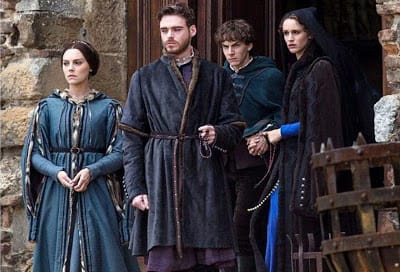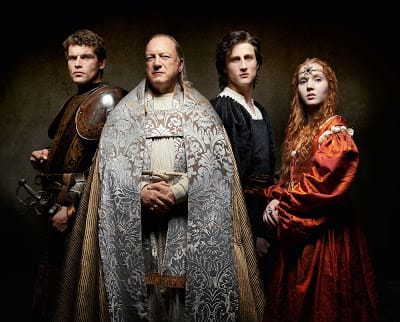I do like historical dramas because I often learn something I never knew before, either watching the thing itself or because it piqued my interest and I do a bit of research. But, as ever, only if they are done well. I was interested in this because my first editor, Peter Lavery, loves Italy, and had talked about its history on occasion. So I had great hopes for the Medicis.
The first couple of episodes I enjoyed, but thereafter the whole thing began to fall apart. Cosimo De Medici was an interesting character who moved into power in Florence with much Machiavellian manoeuvring. He thereafter caused (or assisted) a bit of a renaissance there by funding arts, artists and rebuilding. He ruthlessly acquired power and wealth and then used it to a good end, besides feathering his own bed, of course. He expanded the Medici Bank all across Europe. But here, after the first few episodes, there wasn’t much about this.
It seemed, to the program makers, Cosimo De Medici was a man who spent most of his time staring at people with a mean-and-moody expression. He was a bit naïve and ineffectual and rose mostly by luck and happenstance. And, political correctness rearing its ugly head, the women around him were stronger and more manipulative than him. Yes, they might have been that way, but in reality the power they were allowed mainly concerned family life. The bad guy in this was also a silly cipher – cardboard. Meanwhile, this series having lost its way, far too much time was spent with people staring into each other’s eyes, while the music volume cranked up to try and make it all dramatic.
Next looking for something else in a similar vein we started watching Borgia. The accent of Roderigo Borgia immediately put me off, especially when in contrast with Art Malik who spent much time talking at his shoulder. It was like, many many years ago, hearing John Wayne as a Roman soldier saying, ‘Truly this mayn was the son of Gaad’. Having watched and much enjoyed the 1981 BBC production The Borgias, I prepared myself to be disappointed. However, thus far, I haven’t been.
It’s a truth that if a drama has been on Netflix for a number of years and there is only one series, it’s probably crap. There’s only one series of The Medicis, but there are three of Borgia. I grew used to Roderigo’s out-of-place accent and was drawn into his ruthless pursuit of power, and idiot nepotism. The drama is played well with all the characters pulling their weight. I much enjoyed the portrayal of the cardinals’ religious debates that often ended in fist-fights, and their manoeuvring for power and wealth. And I am learning something about the political structure of Italy with its city states back then, and the world. It can be horribly bloody at times – I am thinking of a man hung upside down and the introduction of a saw – but not unnecessarily so, and strikes me as sincere thus far. I hope it does not lose its way later on, since we are presently only watching series one.

